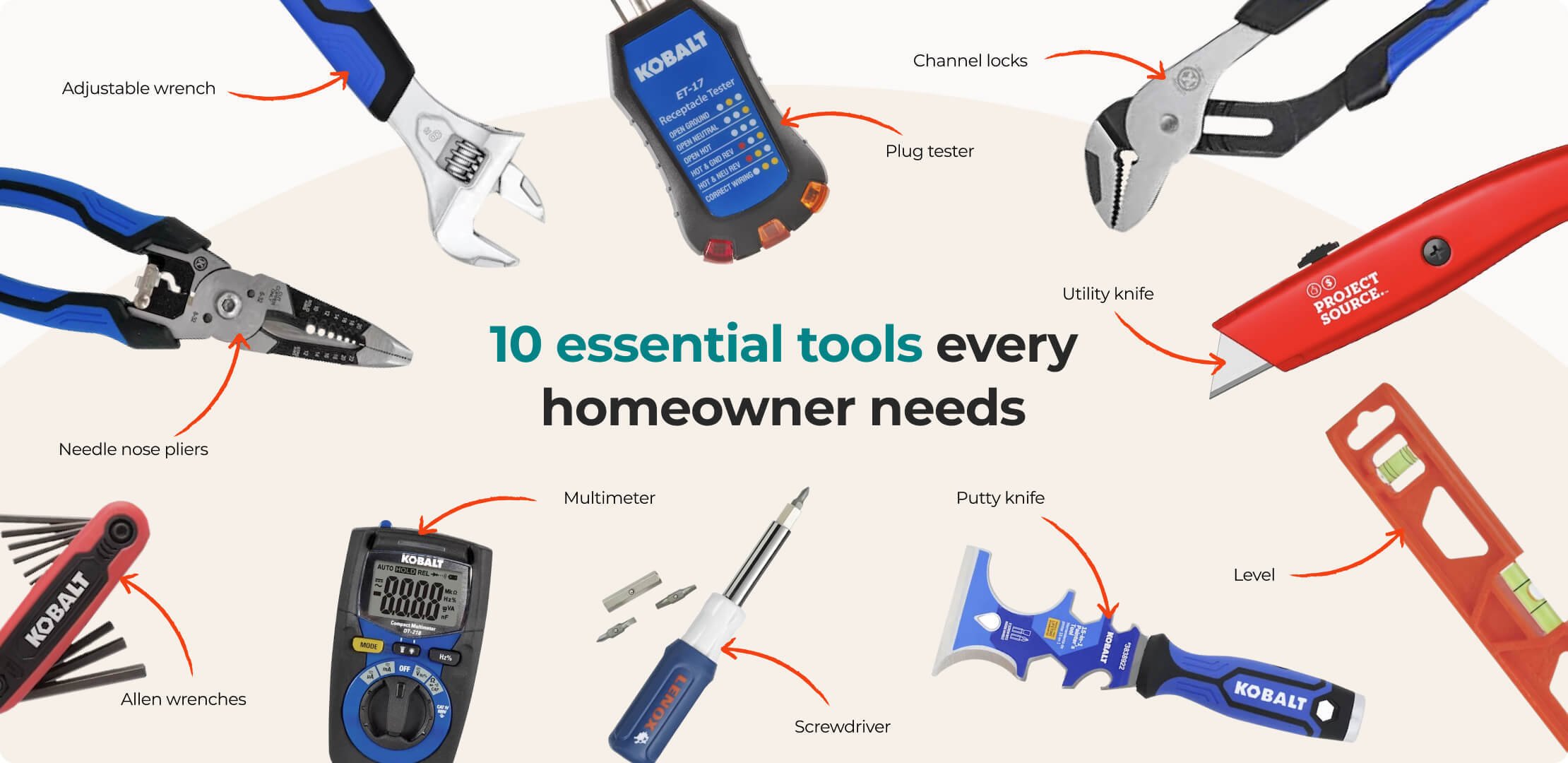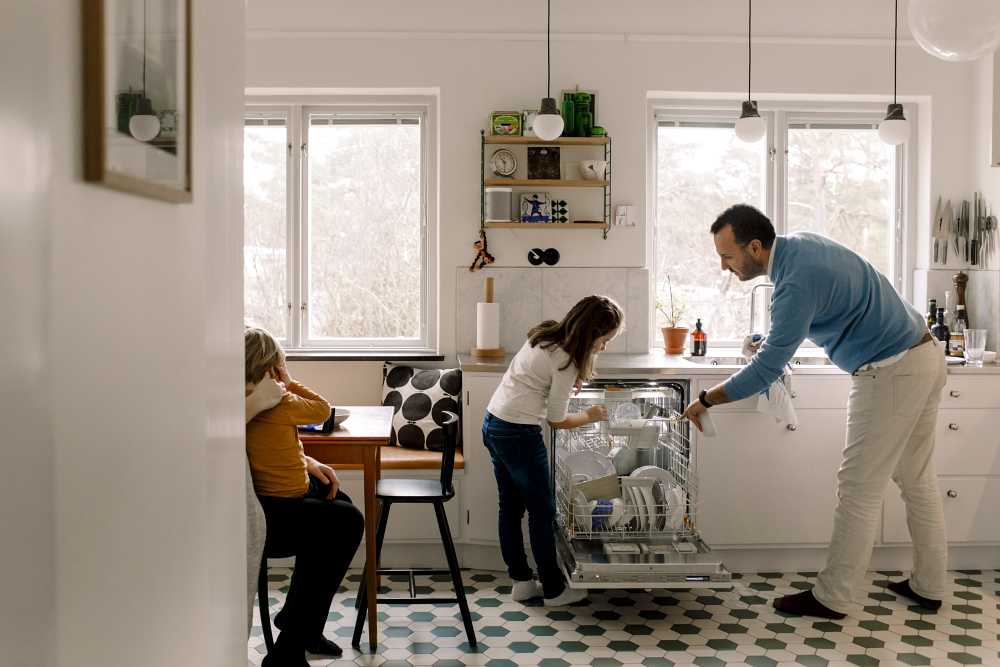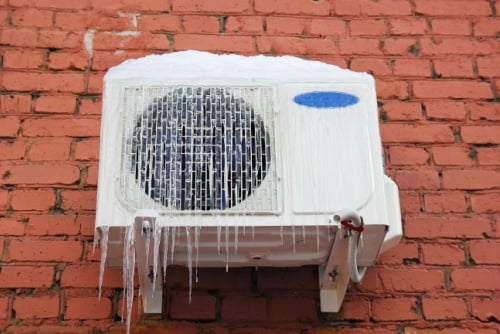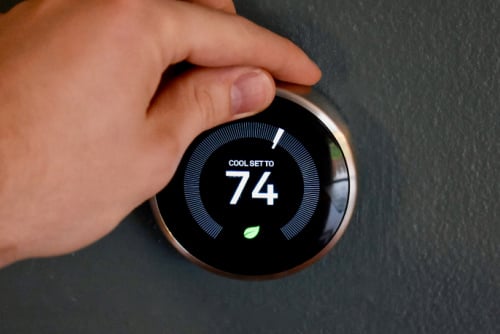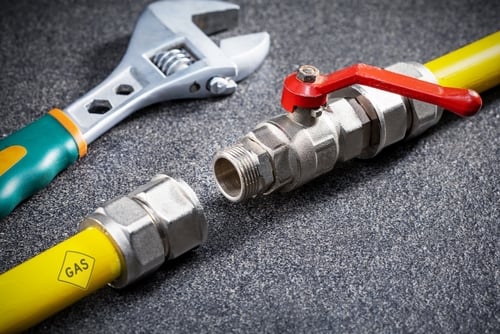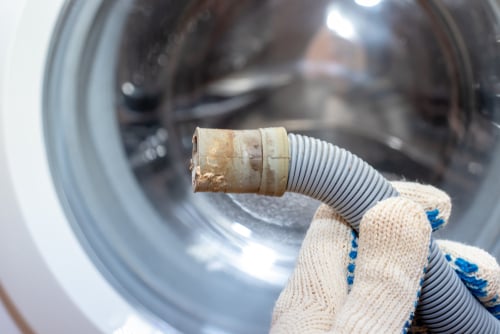You’re a homeowner, and now that you own this sweet piece of real estate, you also own the job of maintaining it.
Armed with some basic information and a few common tools, there’s no reason why you can’t handle the day-to-day homeowner tasks.
Building a Basic Tool Kit
You can always buy a beginner’s tool kit set with somewhere between a dozen and two hundred items that you may or may not ever find reasons to use. The more sensible approach for everyday homeowners is to slowly accumulate a tool kit with functional items that don’t just sit around collecting dust. Tools bought to accomplish today's task make tomorrow's less expensive, too!
Over time, as you take on more DIY projects, you’ll want to consider adding to your tool kit. New tools might even encourage you to take on more complex home projects!
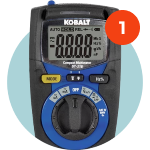
Digital Multimeter
The primary and most important function of a digital multimeter, according to our Experts, is measuring electrical properties, such as voltage, current, and resistance. It is a versatile tool that can be used in a wide variety of applications, including troubleshooting and repairing electronic devices, testing batteries, and measuring the continuity of circuits.
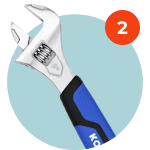
Adjustable Wrench
Once you own a house, you’ll definitely need an adjustable wrench. It’s one of the most basic of all DIY must-have tools. This all-purpose nut-and bolt-turner can help you do everything from assembling prefabricated furniture to attaching a garden hose. You should be good to go with a standard eight-inch wrench. Just be sure you pick one with jaws that don’t wiggle when you shake it.
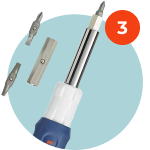
Screwdrivers
Now let’s turn to another set of basic, but indispensable, tools—screwdrivers. You’ll need both the slotted (flat head) and Phillips (x-shaped) versions—and at least a couple sizes of each. You can also opt to spend a few more dollars for a single ratcheting screwdriver that stores a range of both types of bits in the handle.
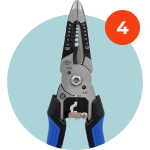
Needle-nose Pliers
Needle-nose pliers are another essential tool with long, pointy jaws that allow you to reach into tight spaces. They are useful for precision work and can grip parts that are too small to hold with your fingers.
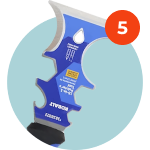
Putty Knife
Putty knives are useful for applying and spreading materials. They are available in a variety of widths, and each width has a different intended use. A putty knife with a narrow blade may be your best option for filling small nail holes in walls or wood whereas a wide blade is more appropriate for larger surfaces and is typically the go-to option for drywall application.
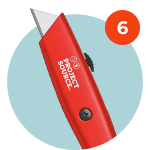
Utility Knife
A utility knife really comes in handy when you’re breaking down all those moving boxes, but it’s also so much more than a box cutter. It’s good for scoring wood and drywall, stripping wires, cutting through cartons, and other hard working tasks.
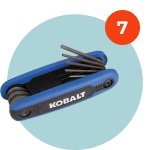
Allen Wrenches
Allen wrenches, also commonly referred to as “hex keys” are small L-shaped hand tools that are used to fasten screws or bolts with a hexagonal socket. They are commonly used for furniture assembly, bike repair, and other close hands-on work. This is because the lever allows for more torque to be applied when you cannot easily access a screw, bolt, or related fastener.
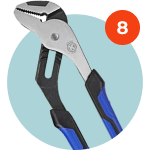
Channel Locks
Channel locks are a type of angled pliers that are used for gripping and pinching. They are sometimes called slip-joint, adjustable, tongue-and-groove, or water pump pliers. This is a powerful tool intended to provide a strong grip. Long handles held provide leverage to make turning objects less of a struggle.
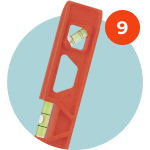
Level
Levels are tools used to determine if a surface is precisely horizontal (level) or vertical (plumb) and come in handy when hanging pictures or other items on the wall. In lay terms, levels are used to ensure that your picture or painting isn’t slanted when you hang it. “Spirit” or “bubble” levels are common types that are good for home use.
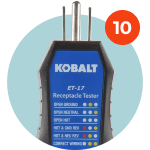
Plug Tester
A plug tester, sometimes referred to as a circuit tester, outlet tester, or socket tester, is a device that plugs into a wall outlet to test how it is wired. They have a 3-prong power plug with indicator lights to determine wiring. This is important when determining how to wire electricity. A plug tester can check voltage, amperage, continuity, shorted or open circuits, and can indicate if wiring has not been installed correctly.
Now You Can Go Beyond Your Starter Tool Kit.
Now that you’ve acquired some of the basics for your toolkit, here are a few more tools you’re sure to need as you progress on your homeowner journey:
- Clamps
- Wire cutters
- Handsaw
- Chisel set
- Socket set
- Stud finder
- Cordless drill
- Cordless blower
- Caulking gun and putty knives
- Paint brushes and rollers
- Sandpaper and sanding blocks
- Workbench and a vise
- Wider variety of hardware
- Additional safety equipment
- Large tool chest with many drawers
- Storage bins for additional organization
Need Help With a Home Project?
If you have a home repair or maintenance project that you aren't sure how to tackle, our Frontdoor Experts are here to help. They can guide you through a repair, help you figure out next steps, or help you determine if a particular project is best left to the Pros. We'll even help you find a vetted, local Pro if in-home help is needed.
Don’t Have the Frontdoor App Yet?
Getting started is as easy as downloading the app and speaking with one of our plumbing, electrical, appliance, HVAC, or handyperson Experts in real time.
When you need to take on a household repair or just have a question, you’re going to want to call the Frontdoor Experts. They have an average of 20 years of experience in their trade and can help 7 days a week from 7 am – 10 pm EST.
Download the app if you haven't already, and sign up for a Frontdoor membership today.
Frontdoor assumes no responsibility, and specifically disclaims all liability, for your use of any and all information contained herein.
Was this article helpful?
